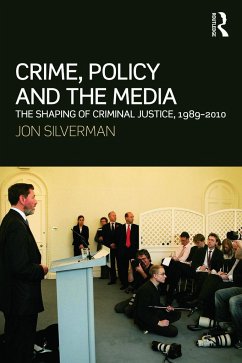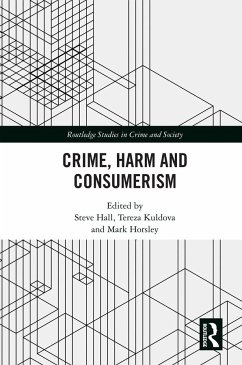
Deterrence, Choice, and Crime, Volume 23
Contemporary Perspectives
Herausgeber: Nagin, Daniel S.; Jonson, Cheryl Lero; Cullen, Francis T.

PAYBACK Punkte
84 °P sammeln!
Deterrence, Choice, and Crime explores the various dimensions of modern deterrence theory, relevant research, and applications. Beginning from the classical roots of deterrence theory in Cesare Beccaria's profoundly important contributions to modern criminological thought, the book draws out the many threads in contemporary criminology that are explicitly mentioned or at least hinted by Beccaria. Subsequent chapters unpack the effects of deterrence, examine the agents of deterrence, and look at the social costs of current criminal justice policies. Suitable for researchers and graduate student...
Deterrence, Choice, and Crime explores the various dimensions of modern deterrence theory, relevant research, and applications. Beginning from the classical roots of deterrence theory in Cesare Beccaria's profoundly important contributions to modern criminological thought, the book draws out the many threads in contemporary criminology that are explicitly mentioned or at least hinted by Beccaria. Subsequent chapters unpack the effects of deterrence, examine the agents of deterrence, and look at the social costs of current criminal justice policies. Suitable for researchers and graduate students as well as for advanced courses in criminology.














